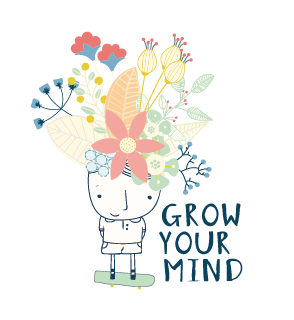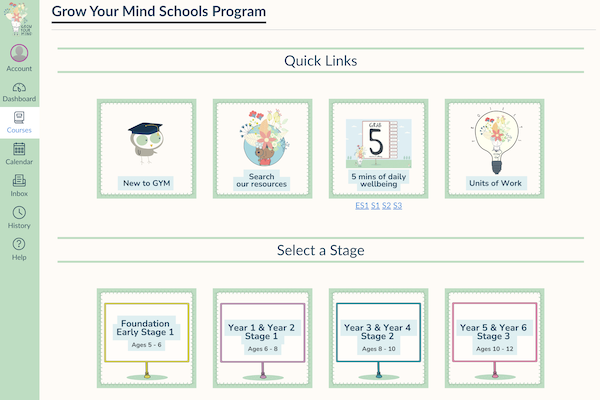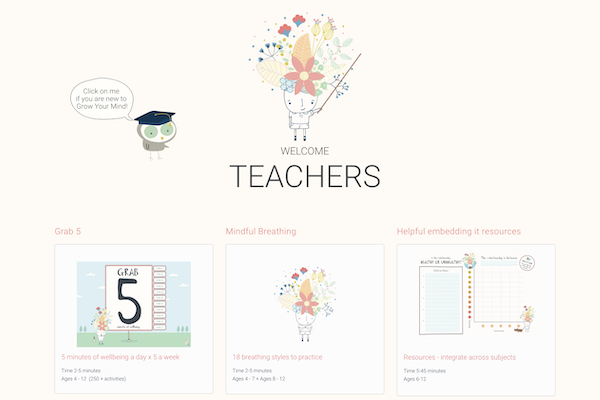Right now in Australia, one woman is killed every week by her partner or ex.
I am a primary school teacher and one of the co-founders of a mental health social venture, called Grow Your Mind. Our central focus is providing teachers with social and emotional wellbeing content in their classrooms. Therefore, how is this horrible statistic relevant to what we do? And should it be?
Let me jump to the second question first: Yes, we believe that this statistic should be relevant to what we do. And if you are a teacher reading this and shouting at the screen, “Great, over-crowded curriculum, terrible pay and now we have to end gender-based violence too?” Relax! You will not be surprised to learn that ending gender-based violence is not solely in your hands (PHEW) but schools can and do have such a critical part to play.
Preventing family and gender-based violence before it occurs is called primary prevention, and just like a puzzle requiring a multitude of slightly differently shaped pieces to come together, so too does the successful prevention of gender-based violence. There are key settings for prevention and some of these are the home, the workplace, and schools.
Schools offer a captive audience of individuals with the capacity to have their attitudes challenged.
After all, respectful relationships education is about just this: changing and challenging the behaviors, practices, the norms, and attitudes that enable an environment where gender-based violence occurs.
Our Watch, which is Australia’s leader in the prevention of violence against women and children, states that schools play a central role in teaching young people what gender-based violence looks like and how it can be prevented. Schools are also where adults go to work, and where parents and carers meet, therefore they have the potential to be powerful hubs with the capacity for positive influence and change.

“Schools are places where respect and equality can be modeled, positive attitudes and behaviors can be shaped and young people be given the skills to recognise discrimination and challenge gender stereotypes.” Our Watch
The education system offers an opportunity for generational and cultural change.
So to question 1, how does that terrible stat have anything to do with Grow Your Mind?
We want to help raise a generation of mentally fit humans. This means children knowing how to emotionally regulate, how to consent and how to accept a no with respect, how to deal with setbacks and sadness, how to look for the good in life, and how to surround yourself with healthy friendships and relationships. It involves us explicitly teaching kids what a healthy relationship is vs an unhealthy one.

Example content on friendship from Grow Your Mind
It also involves teaching kids to have trusted people they can turn to when facing a problem. And part of being mentally fit is helping educators build a positive learning culture at school, where boys and girls feel safe to participate, to join in, and to speak up.
Here’s the thing.
We are a mental health education program with the slogan – poor mental health is serious but mental health education does not need to be. The same goes for gender-based violence. It’s abhorrent, it’s complex, it is serious. But respectful relationships education does not need to be.

Screenshot of content example on the Grow Your Mind school platform.
Building respect between genders includes interactive activities that take less than 5 minutes for teachers to use with their students. These activities might involve a short clip with discussion pointers for students to ask each other. The focus may be on challenging the negative stereotypes they have heard or even believe.

Screenshot of content example on the Grow Your Mind school platform.
Or perhaps it involves a series of conversation starters where students are encouraged to interact with the opposite gender, to be curious, and to ask questions.

Screenshot of content example on the Grow Your Mind school platform.
At Grow Your Mind we have spent the last 3 months creating new content with a focus on respect between genders because we know we are part of the ecosystem that has a part to play in ending gender-based violence.

Screenshot of content example on the Grow Your Mind school platform.
Yes, we are run by females, and yes we are tired of not feeling safe. But also we are inspired by the boys and men in our lives and we are equally inspired by the capacity to change and for teachers to make a positive difference. We want to help educators influence the students they have in a profound way, where they leave school not feeling ashamed, but instead feeling that they too can be part of the solution. And as such you will find that the content we have created is light, playful, engaging, and at times humorous.
We love questions.
We love it when kids ask them and when adults ask them too. In fact, as a team, we welcome and thrive when we are being curious and open-minded. We would rather less of the ‘know it all’ statements and more sentences sounding like this:
…I wonder…
…I am rethinking my initial thoughts,
…could you help me understand this part?
And we also delight in what-about questions. These are brilliant 99.9% of the time.
However, we don’t want the what-about questions to stand in the way of making change.
“But what-about this one time when the woman was lying?”
“But what-about women who are violent, why aren’t we talking about them?”
95% of all victims of violence, whether women or men, experience violence from a male perpetrator. Men tend to experience violence from other male strangers and women experience violence from men they know. These are the facts. These are not there to shame men. Nothing good comes from shame. Not all men are violent. But as we can see, the overwhelming majority of violence comes from men. So come on, let’s not get stuck on the what-about questions anymore. Let’s grow together, let’s create change, let’s stop hiding.
All violence is unacceptable and the underlying causes of it are complex, however, there is a growing body of research and evidence linking gender-based violence to gender inequality. So let’s start there. Let’s get kids thinking about it.

And let’s get kids thinking about all of the different ways they can interact and they can be. Let’s help prevent them from believing their gender must be a certain way.

Screenshot of content example on the Grow Your Mind school platform.
We are playing our part in helping kids feel more capable of handling setbacks in helpful ways and feel a greater sense of connection to others. And we are also incredibly proud to be playing our part to help children embark on a life where they treat others with respect, use their power for good, and act with compassion.
Come join us legends. We can all contribute to the change required to help everyone feel and be as safe and respected as they deserve.



